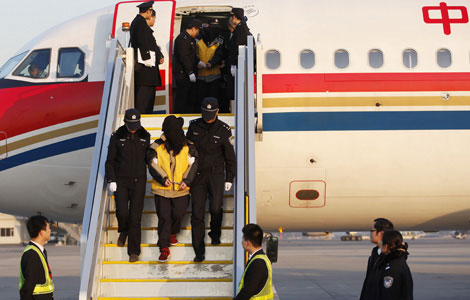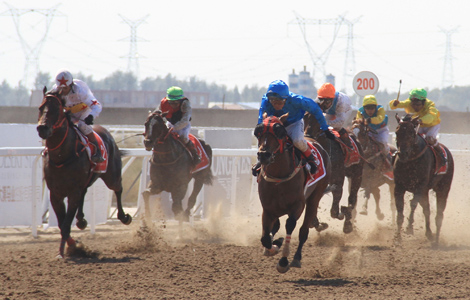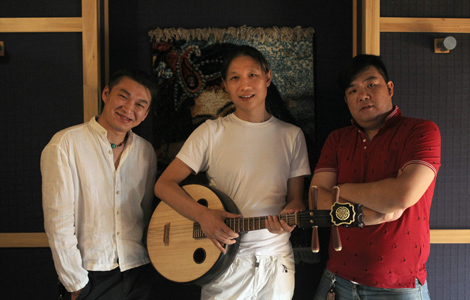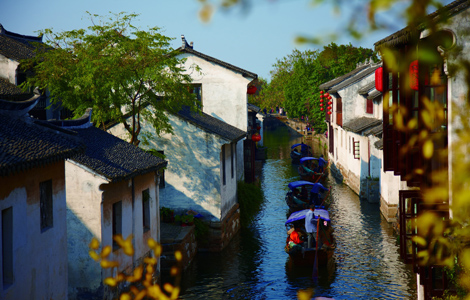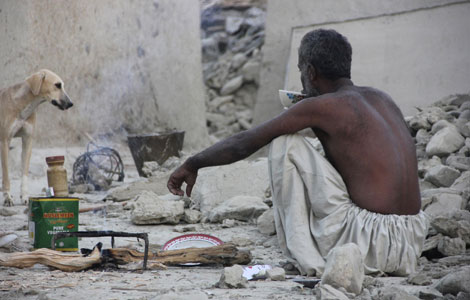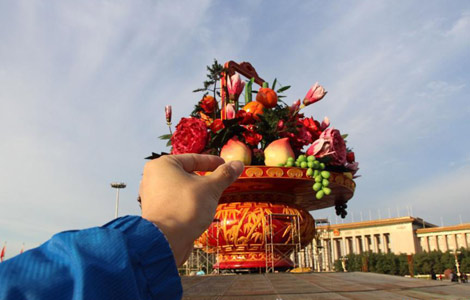China champs at the bit
Updated: 2013-09-26 00:05
By Wang Kaihao (China Daily)
|
||||||||
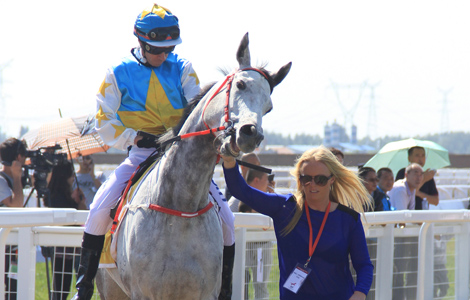 |
|
A foreign jockey rides on his horse before a race.Photos by Bai Menghechaolu / For China Daily |
Louis Romanet, President of the International Federation of Horseracing Authorities, a Paris-based organization overseeing member countries' breeding, racing, and wagering rules, cited his homeland of France as an example while attending CECF. More than 75,000 people benefit directly from the horse industry in his country, 45,000 in the relevant agricultural activity, he says.
"The horse industry in France is in a situation of full employment and creates new jobs every year for young people," he says, expecting the number will be much more in China if a modern nursery industry is built up.
China is not among IFHA's 60 or so members. Romanet vaguely excluded the possibility that China would soon get on board by saying that it takes a few years for a new applicant to have its national organ and a complete legal system regulating horseracing, which is essential to enter his organization.
A cheerful fact is that the Ministry of Agriculture is to release the country's first detailed technical guidance system for the equestrian industry in 2014.
Sun Wei, an assistant to the CEO of Pengxin Group, a Shanghai-based real estate developer, says that the establishment of a thoroughbred nursery will launch a valuable industry chain all over the country. "It will encourage the development of feedstuff produce, racehorse training, auctions, jockey clubs, tourism and many other business sectors."
The group, which has bought 16 horse ranches in New Zealand for dairy produce, will soon construct China's largest horseracing course equipped with a thoroughbred nursery center. Referring to the world's highest standard, the center near Daqing Mountains in northern Hohhot will cover a total area of 2,000 hectares. Construction of the main course is scheduled to be finished before 2017.
"Since we have owned some business in agriculture and had experiences overseas, it won't be strange to set foot into the equestrian industry," Sun says.
However, Sun adds it remains risky to venture into a completely new field.
"We've set a term of three to five years to see whether the nursery industry can be successful," he says. "Our future plan to build more courses will depend on experiments in Hohhot. If everything goes well, I believe numerous racecourses will mushroom nationwide.
"The mainland has the capacity to become a base providing top-level racehorses for Hong Kong, Japan, and Singapore. I hope Hohhot can be an international hub for racehorse breeding in the near future."
A major threshold for exporting of thoroughbreds is the quarantine issue. The country is still considered by foreign authorities unsafe from infectious equestrian diseases, so foreign horses have only one-way tickets entering the border.
Most Viewed
Editor's Picks

|

|

|

|

|

|
Today's Top News
UN resolution on Syria's chemical weapons urged
Death toll rises to 328 in SW Pakistan's quake
China gaining market share in military drones
China builds pilot free trade zone to further open up
China reduces intervention and facilitates business
Xi promotes 'mass line' campaign
Youth short on safe sex awareness
China, UK set to resume high-level dialogue
US Weekly

|

|
